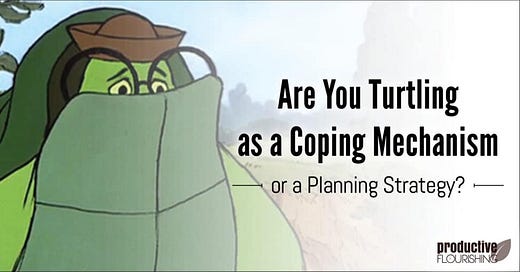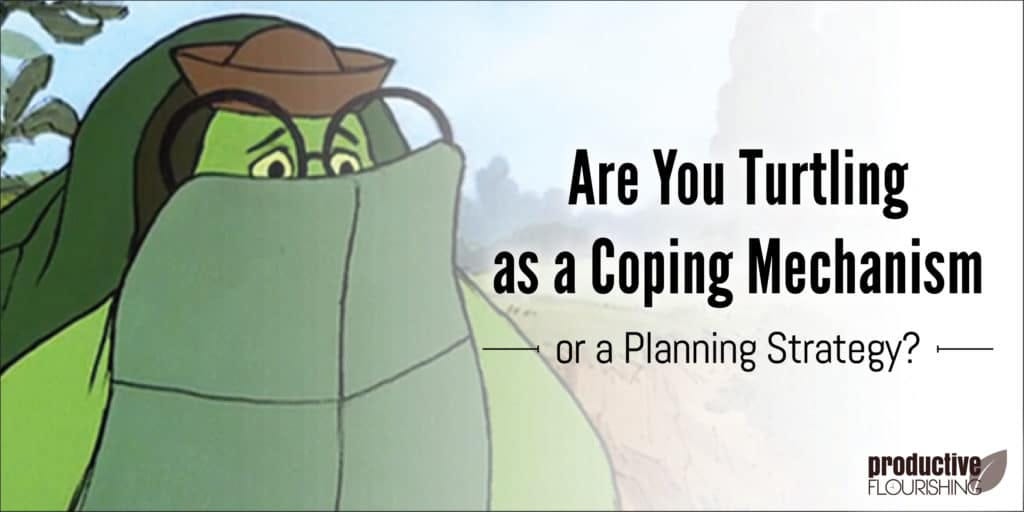Are You Turtling as a Coping Mechanism or a Planning Strategy?
Are You Turtling as a Coping Mechanism or a Planning Strategy?
Remember Robin Hood's fan club from the 1973 Disney animated movie? Specifically Toby the Turtle — that super nervous, anxious character who's often found hiding and talking from the comfort of his shell? You know the one (he's pictured above).
Turns out, Toby very conveniently encompasses what I call turtling.
Turtling describes the process people go through to hide and feel secure. No one's immune; we all turtle in different ways. The key is recognizing whether your turtling is helping or hurting you.
Growth often requires stepping into discomfort — what I call creative tension. While this tension is never comfortable, it's where positive change begins to happen. But when that tension becomes too much, we might turtle and resist our own growth.
When Turtling Is a Coping Mechanism
You might be using turtling as a coping mechanism if you're feeling overwhelmed by major life changes — a career shift, a new baby, or similar challenges — but instead of engaging with these changes or sharing your feelings, you shut down and withdraw from everyone and everything.
This kind of turtling can be particularly vulnerable because you might be one conversation away from either breaking down or finding relief. But by keeping your struggles to yourself, you deny others the chance to help you when you need it most. The pressure builds until something has to give.
When Turtling Is for Processing and Planning
Sometimes turtling serves a healthy purpose: it gives you space to (1) process what you're feeling and (2) figure out what to do next.
In these cases, you're not withdrawing from fear or overwhelm. Instead, you're plotting and preparing to emerge stronger when you're ready. This type of turtling can be productive — just be careful not to get so focused on your plans that you lose sight of what's happening around you. (This is my pattern, in case you're curious.)
When Turtling Is for (Everyone's) Emotional Health
Sometimes, turtling is the wisest choice to prevent saying or doing things you'll later regret. This is especially important if you tend to wear your heart on your sleeve.
If your emotions run particularly intense, you might need to learn to "play it cool." The suggestion to step back might feel frustrating — when someone says "not here and not now," you might hear "not ever." But taking time to process your feelings before expressing them isn't about suppressing them forever. It's about considering how your words and actions affect others, and preventing the kind of emotional unloading that can lead to fractured relationships and lasting regrets.
Turtling is neither good nor bad, and we all need to do it sometimes.
The question isn't whether you turtle — we all do. The question is whether your particular way of turtling helps or hinders your growth.
Are you too comfortable in your shell, avoiding the discomfort of growth? Or are you constantly exposed, never taking the time you need to process experiences and manage your emotional intensity? Either extreme can limit your potential for growth.
How do you turtle? Can you tell when it's instrumental or detrimental? If you know that your turtling is detrimental, do you know how to come out of your shell?
Share this with someone who might need permission to turtle — or encouragement to emerge.





